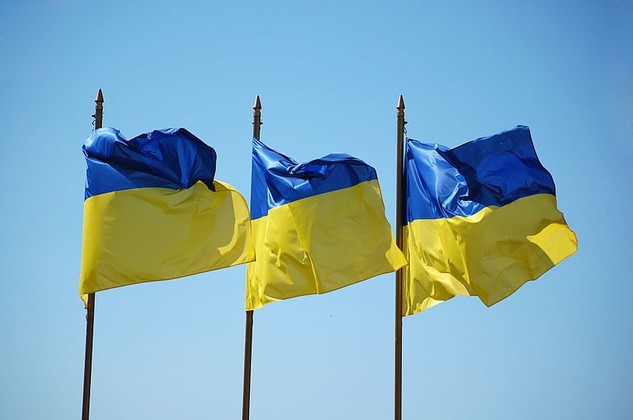Two interesting statements about Russian-Ukrainian crisis that deserve our attention appeared in the media these days. The first came from Michail Khodorkovskij and regarded the fact that the Western sanctions are actually a great mistake. What’s the reason for that? Khodorkovskij does not expect the decrease in support for President Putin even in the case of the lower living standard level of average Russians. The second statement came from Robet Fico and dealt with the 70% chance of a great military conflict extending behind the borders of Russia-Ukrainian conflict, where European Union will play a minor role.
Of course, it is important to look at these comments as a form of political marketing of both these personas. Robert Fico might be strengthening his political position against an opposition by increasing the feeling of threat. Khodorkovskij might be trying to gain attention and credit in Russia in the case of possible future return. However, these comments have a common denominator in itself, and this denominator is the incapability of the European Union to actively cooperate in the successful solution of crisis in Ukraine and to be prepared for an eventual escalation of the situation. The effort to enforce obedience of Russia through economic pressure totally ignores several important aspects of this crisis.
Firstly, European Union has no capacity for more effective acts towards Russia. Politics of sanctions might have some effect, but this effect is only of making Russia and its citizens poorer. Having in mind the aim of stopping the very aggression or pushing Russia to concessions, no results have appeared yet. For now it seems that Russians stand behind Putin with record popularity thanks to nationalism connected with domestic propaganda. Public opinion brings no pressure in this moment. As long as the situation will not come to the peak, the only other chance for European union is the pressure of economic groups, that is the influential oligarchs, whose interests are threatened by sanctions. The problem for European Union has now been mainly to what extend can it anticipate the reversal caused by the pressure of these two groups.
If there will not be any change in Russian politics, the Union has its hands tied in the sense of which further active steps will it be willing and able to do in order to force the Russians to back off. Mainly if the military activity of the rebels will continue. For now it does not look like any other – political or military – action towards Russia, at least with the ambition to limit the operation of rebels, would gain the support of member countries. Unfortunately, this renders Union down in a bad light from the perspective of ability to pursue its own interests in the face of real conflict with another great power. In the future the EU has to take account of building this capacity before it starts to assert its politics towards the East. It has to realize in advance, who has geopolitical interests in the area, what are these interests, and on this basis to anticipate the reaction and prepare responses. If the politics of Russia is driven by – even subjective – fear of its own security because of the military bases on Crimea, economic sanctions might be a weak reaction in order to drive the Russians back because they will not be equal to the interests Putin is by his politics pushing ahead.
But the second question is, what will happen if there accidentally will be a change of government in Russia under the pressure of economic sanctions. This would be a success for European Union, but at the same time it would not solve the fact that Russian propaganda of nationalism has build anticipation in Russian society that a new leader will have to face, having in mind his own reputation. It is easy to imagine that a new generation of Russian leaders will end up in the position of Chinese leaders that has to follow the One China politics against Taiwan mainly because the majority of citizens already accepted it. And the very quote of Khodorkovskij points to the public opinion, as the factor the EU has neglected. Both scenarios then look like a state of emergency. A state of emergency of the European Union and its leaders from the point of ability to anticipate developments and having the capacity for their solution.
Translation: Jana Kobzová



